Ivacy VPN
Ivacy is a Singapore-based VPN which – according to its website – is an 'award-winning best VPN' which offers just about every feature you could possibly need for almost no money at all. True, or just marketing spin? As usual, there's a little of both.
The Servers page on the website claims to offer more than 3,500 servers in over 100 locations across 50+ countries, for instance. But the Buy page has a headline of 2,000+ servers, then refers to 1,000+, and one location table lists only 766 servers at the time of writing, so we're not entirely confident in the figures. There really is a decent number of locations, though, and there should be plenty of choice for most users.
A wide range of apps covers you on Windows, Mac, Android, iOS and Linux, there are extensions for Chrome, Edge and Firefox, and the support site has instructions for manually setting up the service on routers, Kodi, consoles and more.
Ivacy is torrent-friendly (we tried using P2P on three sample servers and it works just fine), there’s malware blocking, no logging, the service supports up to ten simultaneous connections, plus the apps include a kill switch to protect your privacy if the connection drops.
Protocol support covers L2TP, OpenVPN and IKEv2 protocols (no WireGuard yet), split tunneling allows you to choose which traffic you route through the VPN tunnel, and the feature list goes on.
If the service isn't working as it should, 24/7 support via email, ticket and live chat is on hand to point you in the right direction.
Prices are generally low. Monthly billing is reasonable at $9.95, but this falls to $2.45 for the two-year plan (there's no annual option right now), and the five-year subscription (not on the regular pricing page, but you'll find it here) is a ridiculously cheap $1.33 a month.
To put that in perspective, sign up for a one-year HideMyAss! plan and you'll pay $60 immediately, another $60 a year and a day later: $120. Spend $80 at Ivacy and that's it for five years. Even if you only use Ivacy for a couple of years, you'll more than get your money's worth.
Optional extras include dedicated IPs (US, UK, Australia, Canada, Germany, Hong Kong, Singapore) for a very reasonable $1.99 a month (NordVPN asks an extra $5.83, or $70 a year), and port forwarding support for $1 a month.
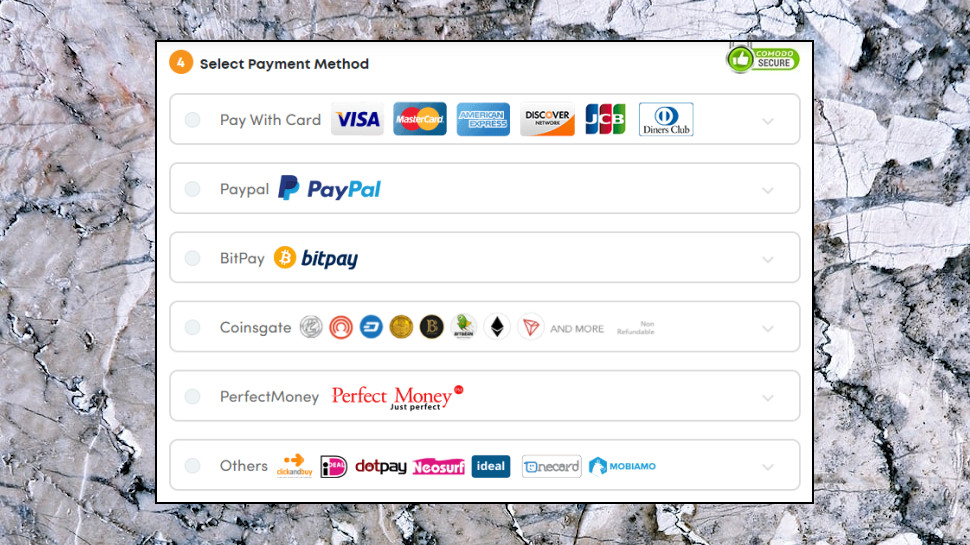
There's support for multiple payment methods, including card, PayPal, Alipay, Paymentwall, PerfectMoney, and Bitcoin and other cryptocurrencies via BitPay or CoinGate.
As we write, Ivacy is also throwing in 2TB of encrypted Internxt cloud storage space at no extra cost (a big surprise, as that alone is priced from 10 Euros a month on the Internxt site.) Ivacy says this is a limited offer so it'll probably be gone by the time you read this, but if there's some big holiday or other occasion coming up (Thanksgiving, Black Friday, Christmas, Easter), take a look at the site, maybe it (or something similar) will be back.
There are a couple of trial options. You can get one day for free, or get a week's coverage for $0.99. Beware, though: the 7-day trial automatically renews as the annual plan, unless you cancel. Fortunately, even if you sign up and regret it, you're further protected by a 30-day money-back guarantee (or 7-days for monthly-billed accounts).
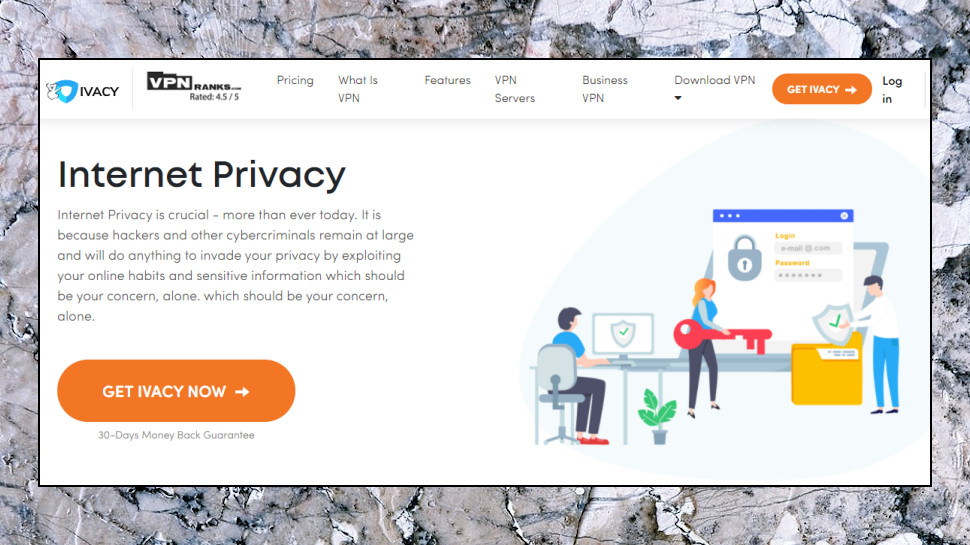
Privacy and logging
Ivacy has an excellent privacy policy which spells out everything it records, and everything it doesn't, in refreshingly clear detail. Here's a key paragraph:
'We strictly do not log or monitor, online browsing activities, connection logs, VPN IPs assigned, original IP addresses, browsing history, outgoing traffic, connection times, data you have accessed and/or DNS queries generated by your end. We have no information that could associate specific activities to specific users.'
If you've ever spent an age scrutinizing a VPN's small print and support site looking for a sign of a hint of a clue about its privacy policy, you'll appreciate how rare it is to get that much information crammed into a couple of sentences.
The policy goes on to detail the personal data Ivacy does collect (name, email address, payment methods), and other collection methods (app crash reports and diagnostics via Firebase and Crashlytics, Google Analytics on the website). This isn't ideal, especially as Ivacy's apps don't give you the ability to choose whether you'd like to send this crash information. This isn't unusual, though - IPVanish also uses crash reporting without asking you first - and at least Ivacy allows you to request the deletion of your personal data via the Members Area of its website.
There's no way to verify any of Ivacy's privacy promises, unfortunately. Other VPNs are increasingly putting themselves through public security and privacy audits – TunnelBear now has annual audits of its apps, infrastructure, website and more – but Ivacy hasn't done this yet. Hopefully, that will change soon.
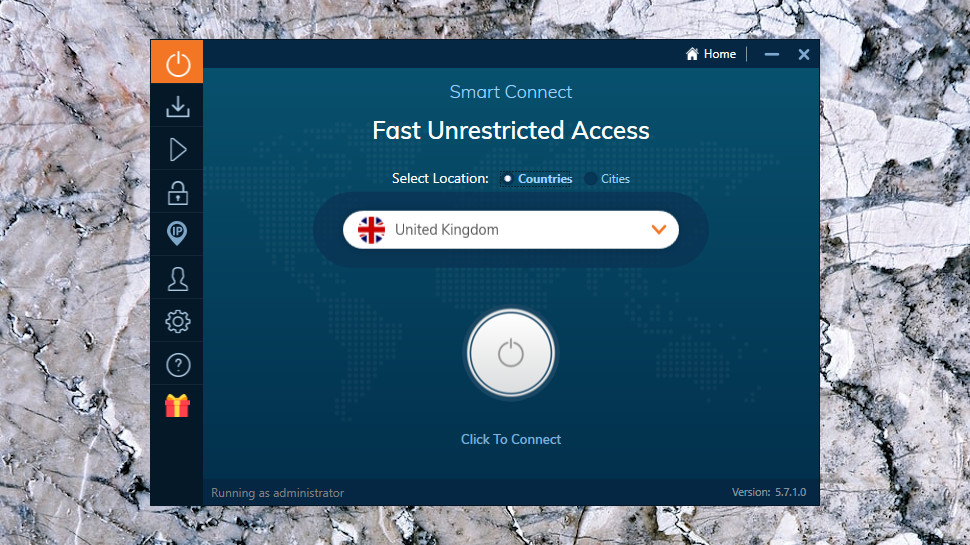
Apps
Signing up with Ivacy worked much like any other VPN we've ever used. We chose a plan and payment method, handed over our cash, Ivacy sent us a Welcome email with a link to set up our password, and the website offered links to Ivacy's many apps. We downloaded and installed the Windows client, and it was ready to go within a few seconds.
The client interface looks similar to many other VPN apps. The opening screen has a large button which automatically connects you to the nearest server, or you can choose your location from a list.
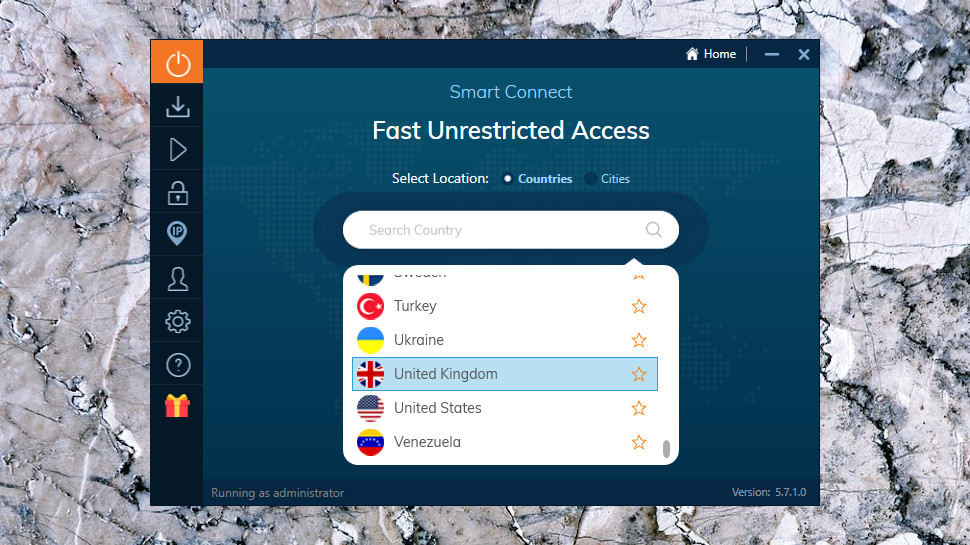
This list can be displayed as countries or cities. Seems a good idea, but even if you choose the City option, the app still displays them in country order. Sequences like Perth (Australia), Vienna (Austria), Brussels (Belgium), Sao Paolo (Brazil) make it tricky to scroll directly to the location you need.
There are no ping times or server load figures, no filters or sort options to help you make the best choice. The app does have a Search box, though (typing LON cuts the list to Thessaloniki and London), and a Favorites system can group your most commonly used choices.
A left-hand toolbar helps you select servers for particular tasks. Click Streaming, for instance, and you're able to choose platforms you'd like to unblock and view (Amazon Prime Video, BBC, Hulu, Netflix and many more). That's genuinely helpful, and a big improvement on the 'connect to each US server in turn until you find one that works' strategy you'll need with many VPNs.
Other options are more questionable. An 'Unlocking' page gives you another list of locations, for instance, apparently to help you access geoblocked sites. Uh, isn't that what we'd expect from the regular and the streaming areas? Why do we need a third?
A 'Secure Download' feature apparently 'scans for any viruses or malware in the data being downloaded and removes it at server level.' The website page on this feature says it 'scans and removes such viruses and malicious files before they even make their way to your devices.'
That makes it sound as though the service is checking the contents of the files you're downloading, which doesn't like the best privacy move. If you were accessing a zip file of Office documents, for instance, would you really want the system to extract and inspect each one? Fortunately, this looks like Ivacy is overselling its abilities a little, and our tests Secure Download is probably using a simple DNS blacklist to block dangerous URLs.
Settings enable choosing your preferred startup mode, for example opening with the Streaming page. There's an option to switch protocol (OpenVPN UDP or TCP, L2TP or IKEv2, but no WireGuard yet), split tunneling (unusual for the desktop), a kill switch and a multiport setting which enables scanning for open ports to help bypass VPN blocking.
Desktop clients normally offer many more features than their mobile equivalents, but Ivacy's Android app is surprisingly capable, with the same connection modes (streaming, downloading, unblocking), a connection list displayed by country or city, a kill switch, split tunneling and multiport mode. Settings are a little more basic, and in particular it only supports the OpenVPN protocol, but otherwise this is a decent app, easy to use but with a reasonable feature set.
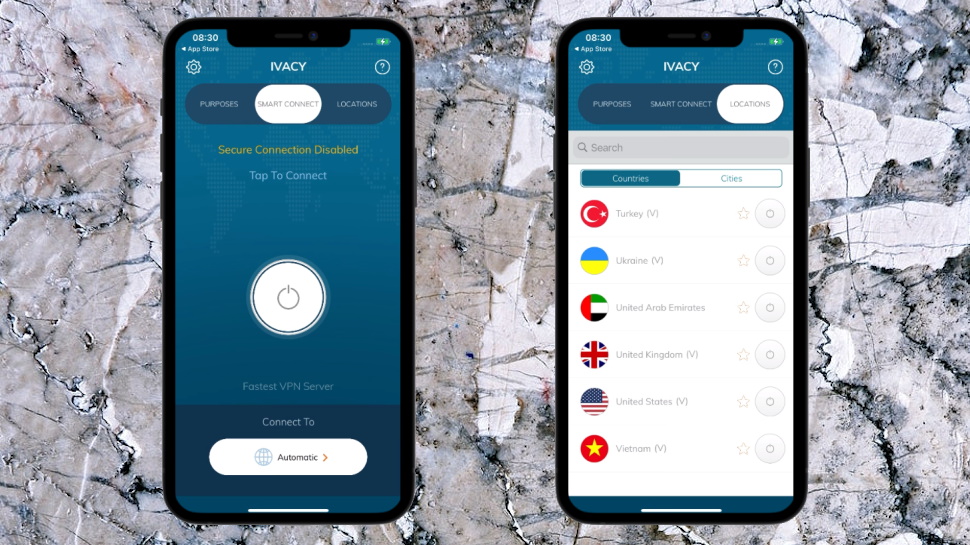
It's a similar story with the iOS app, which aside from its use of IKEv2 rather than OpenVPN, is a very close match for Ivacy's other offerings.
If there's an issue here, it's the apparently slow pace of software development. Ivacy's apps haven't added any significant new features for some time, and if you're hoping for major improvements, like WireGuard support, that suggests you might be waiting for some time.
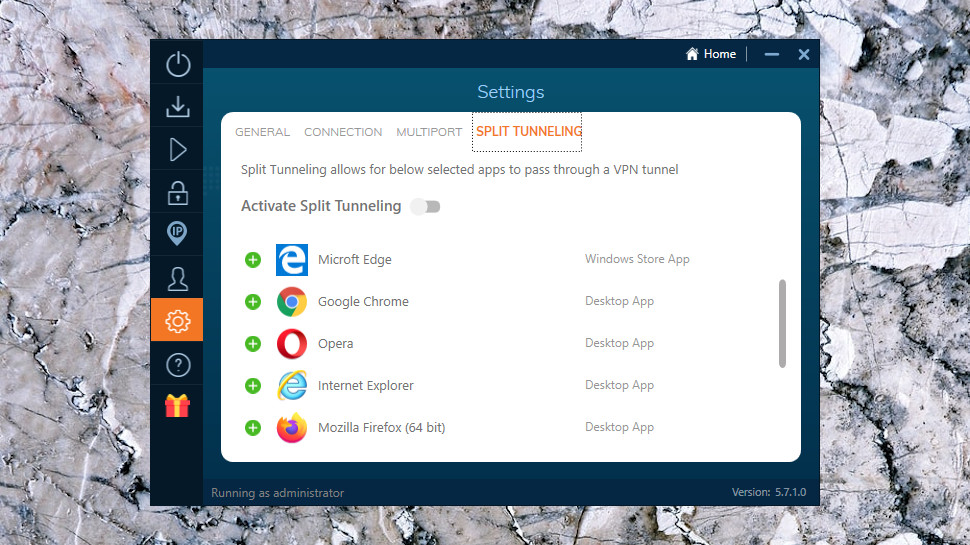
Windows testing
We've reported on several usability issues in previous reviews of Ivacy's Windows client. Several have been fixed, and there are still plenty of small annoyances and irritations.
There's the city list sorted by countries, for instance. OpenVPN connections can sometime take a very long time to establish (30 seconds and more.) Notifications alert you when the VPN connects, but not when it disconnects. And switching locations is more of a hassle than it should be, as you can't choose another server, or even browse the location list, until you've closed the current connection.
In the last review we noticed that choosing the L2TP protocol only ever got us IKEv2 connections. The good news is that didn't happen this time. The bad news is when we chose L2TP, the client never connected at all.
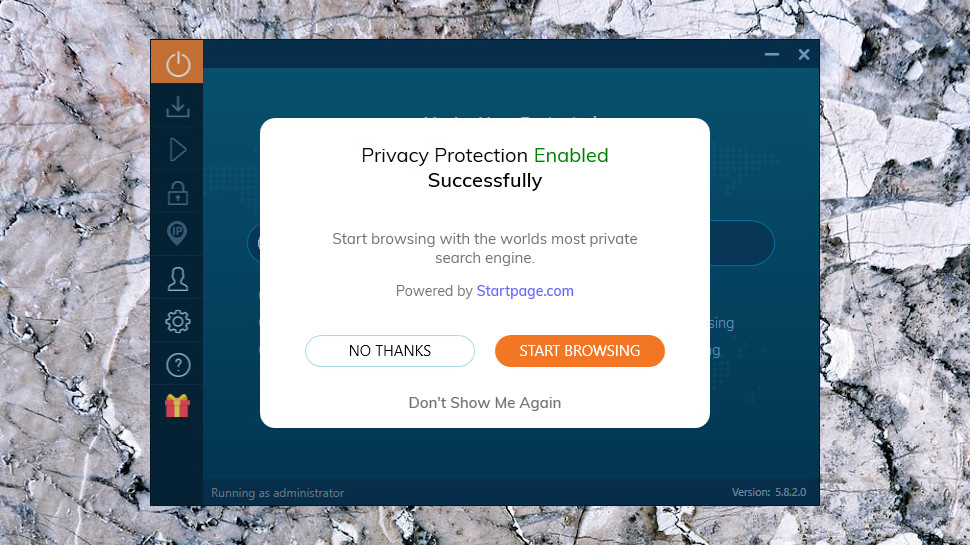
Non-technical annoyances included regular prompts to rate the service after disconnecting. We expect that with a free VPN, but not when we're paying for a commercial product.
The client did a fair job of securely setting up the VPN tunnel. It configured IKEv2 connections with IPv6 disabled, encryption required (not maximum encryption, though) and didn't save our credentials locally. It set up OpenVPN with AES-256-CBC encryption (OpenVPN complained that the remote server preferred AES-256-GCM, though), and the kill switch was enabled by default.
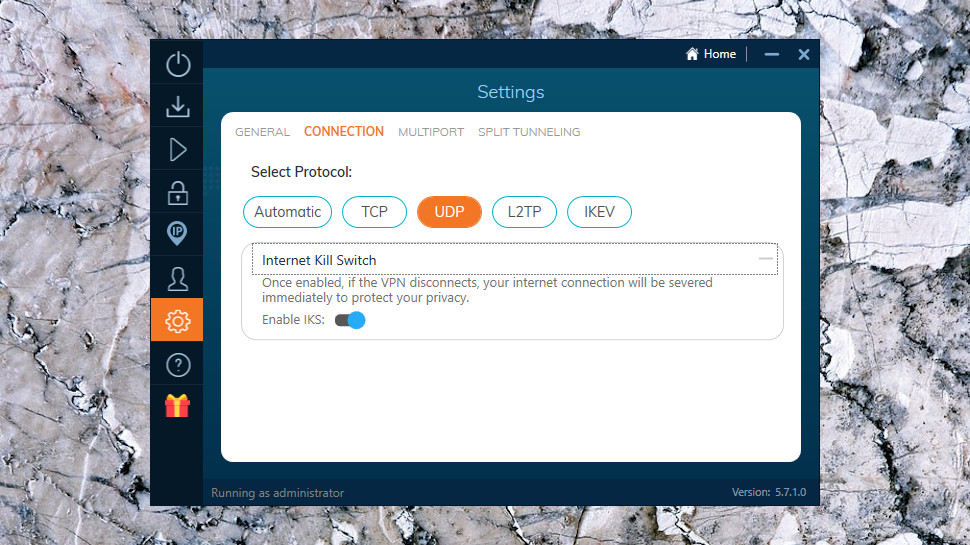
The kill switch worked reasonably well. However we closed the VPN (OpenVPN or IKEv2), the client noticed, blocked our internet, alerted us and reconnected. That's great, but we noticed another issue.
After the connection dropped, the client reconnected, but switched protocols without letting us know. For example, when an OpenVPN connection drops, it reconnects using IKEv2, but still displays OpenVPN as the protocol. When an IKEv2 connection drops, it reconnects using OpenVPN, but displays the active protocol as IKEv2.
This wasn't a disaster. The kill switch protected us under all circumstances, and both OpenVPN and IKEv2 are more than strong enough to keep hackers at bay. Displaying false information to the user is never good, though, and if the client thinks it's using one protocol when it's actually using another, that could lead to who-knows-what problems later.
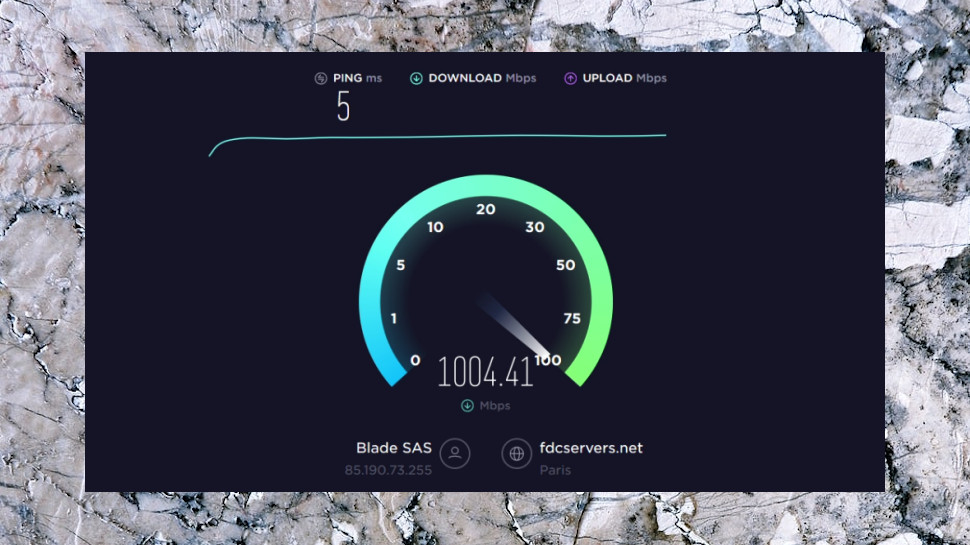
Performance
Our performance tests began by running checks with SpeedTest.net, TestMy.net, Netflix' Fast.com and others from a UK data center with a 1Gbps connection. We ran each test five times with an OpenVPN connection, five times with IKEv2, repeated the full set for morning and evening sessions, then analyzed the data and calculated median speeds.
IKEv2 proved excellent, with the best sessions averaging 330-390Mbps. OpenVPN was less consistent at 230-380Mbps, but it's still in the same area as vendors like TunnelBear (290-370Mbps in our last tests), ZenMate (290-300Mbps) or ProtonVPN (300-310Mbps.)
We repeated the full test set from a US location with 1Gbps connection. This time the results were significantly slower, at 110-120Mbps with IKEv2, 180-190Mbps with OpenVPN.
Ivacy has enough power for many tasks, then, but results can vary significantly depending on your location. It's also trailing a long way behind providers with support for WireGuard or their own high-speed protocols, including Hotspot Shield (360-380Mbps in both the UK and US), NordVPN (up to 240-480Mbps) and ExpressVPN (490-630Mbps.)
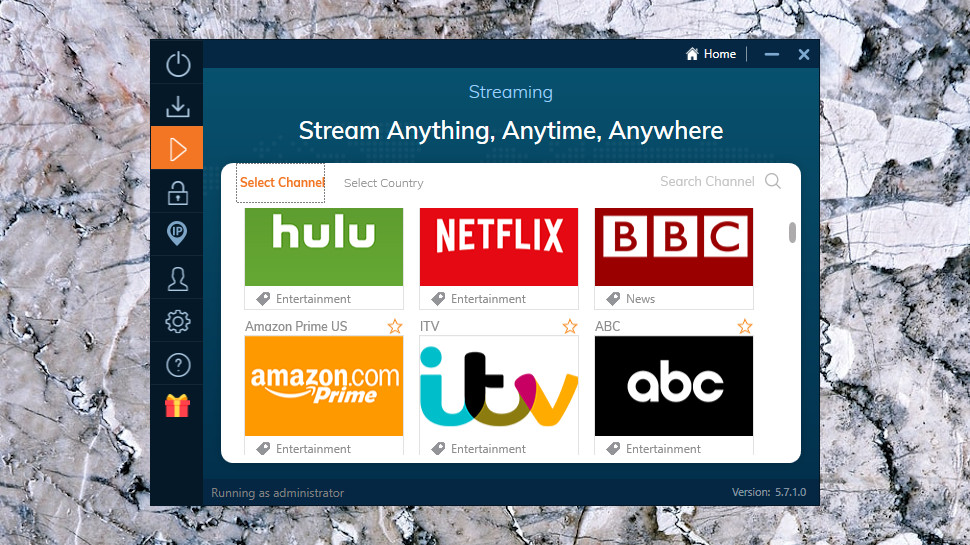
Netflix and streaming
The Ivacy website boasts that it allows you to 'stream anything, anytime, anywhere', which sounds good to us. And this isn't just vague marketing waffle – the apps include specialist streaming locations which aim to unblock Netflix and many other streaming platforms.
To try this, we launched the Windows client, chose the Streaming mode and the Netflix channel, and watched as the client connected. After that, the client asked if we wanted to watch US Netflix, and when we clicked Yes, it opened our default browser at the Netflix site. That's not just convenient, it also unblocked the site, and we were able to stream content.
Streaming platforms may sometimes partially block a VPN (they detect some IPs, not others), so we check each site three times, with three different IP addresses, to make sure everything still ran smoothly. And it did; we got access with each connection.
That was good news, and as our testing continued, it only got better. We switched back to the client, moved on to check BBC iPlayer, Amazon Prime Video and Disney+, and Ivacy got us into all four.
The big streaming platforms are constantly working to block VPNs, so there's no guaranteeing this situation will last. If you're not so lucky with the main Ivacy client, though, the company has another option.
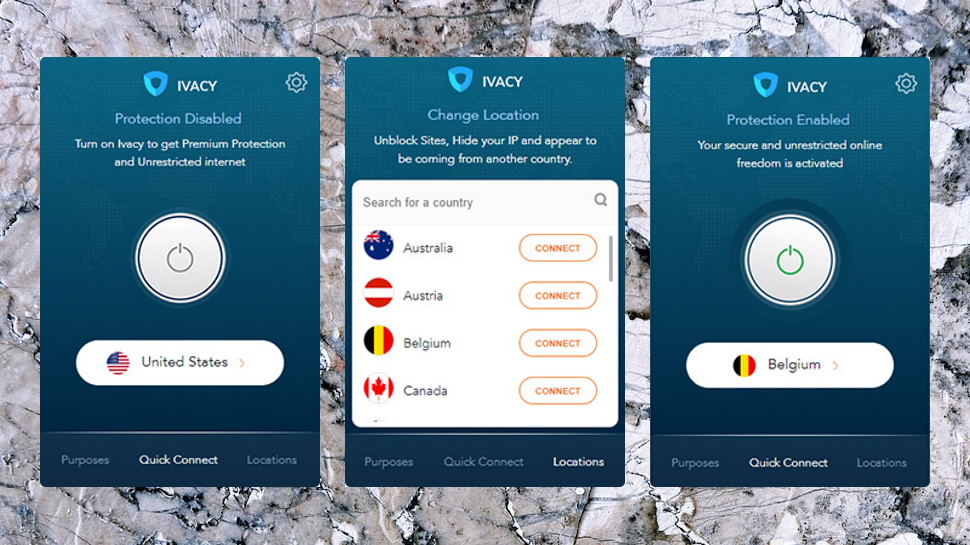
Ivacy also provides browser extensions for Chrome, Firefox and Edge. Like the apps, these also support various streaming platforms, and in previous reviews we've found they can unblock some sites when the main apps fail.
Support
The Ivacy support site is always available if you run into problems, with an assortment of installation, troubleshooting and other guides. There's a little useful content, but most articles are short on detail, and some can be confusing.
For example, the 'What level of encryption does Ivacy VPN provide?' document explains that 'Our VPN network supports encryption levels ranging from zero encryption to the highest SSL or AES 256-bit encryption.' Zero encryption? Sounds worrying. How is that possible?
The document then states that 'the level of encryption you get depends on the protocol you have opted for within the Ivacy VPN app' and lists your options, but doesn't tell you which protocol offers what level of protection, or make any effort to explain which is best. A VPN newbie might not unreasonably assume that one of these protocols had 'zero encryption', but there's nothing to tell you more.
There are specific articles on some protocols, but they're not exactly helpful, either. Here's what Ivacy has to say about PPTP, for instance: 'Point to Point Tunneling Protocol (PPTP) is the fastest protocol and does not affect your internet speed. But on the other hand, it lags behind on security a little when connecting with PPTP protocol.' That's not an excerpt: it's the entire article.
Fortunately, the website also offers 24/7 live chat support. We had a useful response in around a minute when we posed a test question – much better than we've seen with most of the competition.
Ivacy's email support is a little slower, unsurprisingly, but still acceptable. We typically receive helpful replies within around two to three hours, with the fastest response being around 30 minutes; also better than you'll see with many more expensive competitors.
Ivacy review: Final verdict
Ivacy offers a pile of advanced features for a seriously low price, but speeds aren't great, and we noticed several issues with the Windows app. Bargain hunters may want to check it out, but do some intensive testing before you buy.
- We've also featured the best VPN
0 comments:
Post a Comment